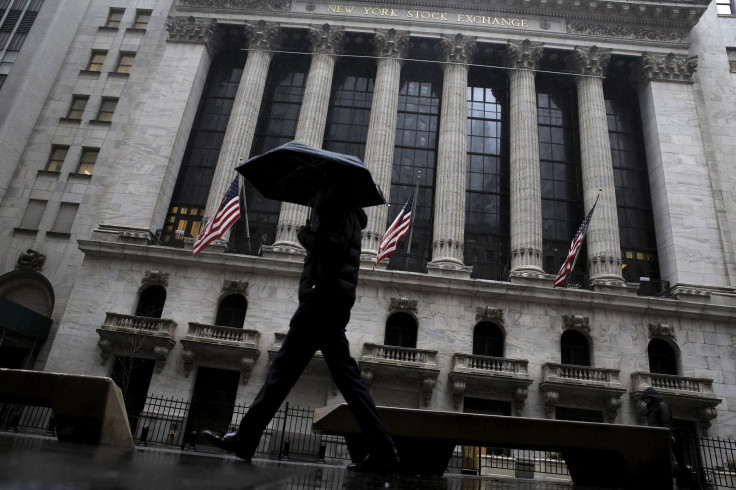Dow Jones Industrial Average Down Despite Rosy US Jobs Numbers; Gloomy News Out Of Japan Weighs On Global Stocks

This story was updated at 4:15 p.m. EDT.
Wall Street followed global markets lower early Friday, but ended the day solidly in the green following data showing better-than-expected growth in U.S. jobs last month and other positive U.S. economic news. Global markets fell on gloomy manufacturing and wage data from Japan, the world’s third-largest economy.
After falling more than 100 points early in the day, the Dow Jones Industrial Average (INDEXDJX:.DJI) closed up 107.66 points, or 0.61 percent, to 17,792.75 Friday. The Dow gained 1.59 percent for the week and is up 2.1 percent for the year.
The broader Standard & Poor’s 500 index (INDEXSP:.INX) closed 13.04 points higher, or 0.63 percent, to 2,072.78. The S&P gained 1.8 percent for the week and is up 1.4 percent for the year.
The Nasdaq composite (INDEXNASDAQ:.IXIC) rose 44.69 points, or 0.92 percent, to 4,914.54. The tech-heavy index gained nearly 2.95 percent this week but is still 1.85 percent lower for the year.
Eight of 10 S&P 500 sectors closed higher Friday. Energy and telecom stocks closed lower. Goldman Sachs Group Inc. (NYSE:GS) led Dow advances while Chevron Corp. (NYSE:CVX) led declines.
But stocks rose into the green toward midday trading after a widely watched monthly survey from the University of Michigan showed a better-than-expected rise in consumer sentiment. A separate private-sector report showed U.S. manufacturing activity rose after five monthly declines.
Most global markets were lower after the Bank of Japan announced in its quarterly Tankan survey that sentiment in the country’s big manufacturers — which includes major names like automaker Toyota and telecommunications and internet conglomerate Softbank — hit a three-year low. Estimated cuts to investments this year were larger than expected.
The report “does nothing but highlight the deteriorating economic fundamentals in Japan. This report came in below even the most pessimistic report,” Stephen Innes, a senior trader at OANDA Asia Pacific, said in a note released Friday. “It signals a disturbingly large drop in business confidence.”
Further weighing on sentiment was a drop in crude prices after Saudi Deputy Crown Prince Mohammed bin Salman told Bloomberg in an interview the world’s oil kingpin would not freeze output unless Iran and other major producers agree to do so. Separately, a Reuters survey showed this week OPEC output increased in March. Stocks have been closely tracking with oil prices as investors use crude and other commodities as a signal of global economic health.
U.S. West Texas Intermediate dropped 4.2 percent to $36.73 after topping $40 last week for the first time since early December. Brent crude, the other major global oil-price benchmark, declined 4.1 percent to $38.68.
The benchmark U.S. 10-year Treasury settled at 1.78 percent, lower than the previous day’s settlement yield of 1.79 percent. The bond yield typically falls when investors are less confident about the markets and increases with optimism.
Gold, another so-called safe harbor investment, fell 0.91 percent to $1,224.30 per troy ounce. Gold prices tend to rise as confidence in the markets falls, but a rally in the precious metal so far this year spurred profit-taking Friday.
Asian stocks were pummeled by the weak Japanese data and despite better-than-expected monthly Chinese manufacturing data that showed growth for the first time since July. The news helped offset a Standard & Poor’s downgrade to China’s creditworthiness, citing increased economic and financial risks.
Japan’s Nikkei 225 plunged 3.55 percent Friday and is off 5.63 percent for the week.
China’s broad CSI 300 Index of the mainland’s largest companies eked out a 0.12 percent gain for the day and 1.6 percent for the week. Hong Kong’s Hang Seng, which is more connected to global markets than China’s mainland markets, fell 1.34 percent for the day and gained 0.7 percent for the week.
Australia’s S&P/ASX 200 lost 1.64 percent Friday and is down 1.54 percent for the week. South Korea’s main Kospi Index shed 1.12 percent for the day and lost 0.45 percent for the week.
European shares ended the day lower. The broad pan-European Stoxx Europe 600 fell 1.45 percent Friday. It’s down 1.49 percent for the week and down 7.2 percent for the year. The Paris-based CAC 40 dropped 1.43 percent Friday while London’s FTSE lost 1.16 percent. Frankfurt’s DAX was down 1.71 percent.
© Copyright IBTimes 2024. All rights reserved.












